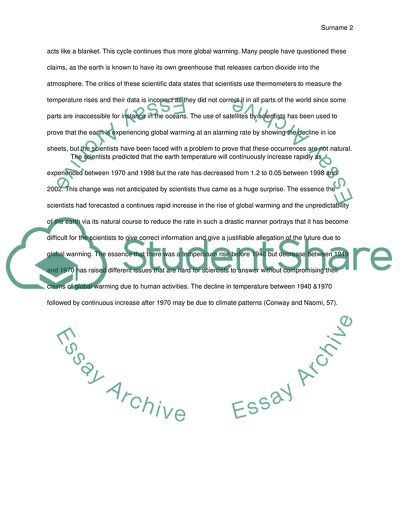Cite this document
(Scientific Issue and Problems Involved with Climate Change Coursework Example | Topics and Well Written Essays - 2500 words, n.d.)
Scientific Issue and Problems Involved with Climate Change Coursework Example | Topics and Well Written Essays - 2500 words. https://studentshare.org/environmental-studies/1869508-climate-change
Scientific Issue and Problems Involved with Climate Change Coursework Example | Topics and Well Written Essays - 2500 words. https://studentshare.org/environmental-studies/1869508-climate-change
(Scientific Issue and Problems Involved With Climate Change Coursework Example | Topics and Well Written Essays - 2500 Words)
Scientific Issue and Problems Involved With Climate Change Coursework Example | Topics and Well Written Essays - 2500 Words. https://studentshare.org/environmental-studies/1869508-climate-change.
Scientific Issue and Problems Involved With Climate Change Coursework Example | Topics and Well Written Essays - 2500 Words. https://studentshare.org/environmental-studies/1869508-climate-change.
“Scientific Issue and Problems Involved With Climate Change Coursework Example | Topics and Well Written Essays - 2500 Words”. https://studentshare.org/environmental-studies/1869508-climate-change.


